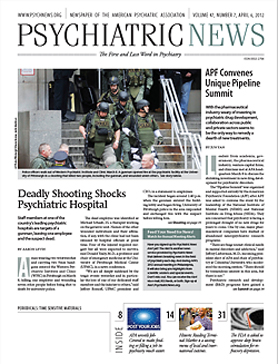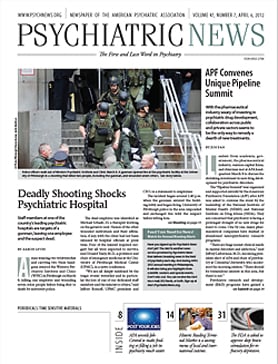The strength of evidence for the comparative effectiveness of antipsychotic medications in children is generally limited, indicating a need for more randomized, controlled trials and cohort studies to assess the long-term safety and efficacy of these drugs, according to a review in the March Pediatrics.
“There is a need for high-quality trials that focus on comparisons that reflect everyday clinical practice decisions,” wrote Jennifer Seida, M.P.H., of the Alberta Research Centre for Health Evidence and colleagues from several Canadian universities.
Their review covered first- and second-generation antipsychotics used in treating pervasive developmental disorders, disruptive behavioral disorders, bipolar disorder, Tourette’s syndrome, behavioral symptoms, and schizophrenia and related psychoses.
The researchers assessed 81 studies: 62 randomized, controlled trials (RCTs), two nonrandomized, controlled trials, and 17 cohort studies. Of those, 38 covered head-to-head drug tests, 17 compared different dosages of the same medication, and 26 tested an antipsychotic against placebo.
Fifty-six of 62 RCTs were likely biased by poor blinding, allocation concealment, sequence generation, or incomplete outcome data, the researchers concluded. More than 60 outcome scales were used in the 81 studies, making them hard to compare. In addition, 78 percent were funded by industry, a source of potential bias.
The review’s methodology may obscure some successes in the field, suggested one expert not involved in the research.
“We have good evidence that these medications work in schizophrenia, bipolar mania, and aggression in autism,” said Christoph Correll, M.D., medical director of the Recognition and Prevention (RAP) Program at the Zucker Hillside Hospital in New York and an associate professor of psychiatry at Hofstra Northshore LIJ School of Medicine. “But we need more placebo-controlled studies to evaluate their effects on disruptive behavior disorders and in aggression not associated with autism.”
Combining RCTs with open trials and cohort studies “really muddies the waters,” Correl told Psychiatric News. “If the authors included biased studies in the review, then their conclusions are a self-fulfilling prophecy.”
Low to moderate strength of evidence backed the results of most of these studies, wrote Seida and colleagues.
In general, they said, second-generation antipsychotics (SGAs) “consistently resulted in greater symptom improvement in disruptive behavior disorders, bipolar disorder, schizophrenia, and tic severity than placebo. As expected, SGAs posed a greater risk for adverse events compared with placebo.”
However, patient-related outcomes, such as health-related quality of life, social and occupational functioning, and legal involvement, were rarely evaluated, and when they were, strength of evidence was poor.
“Olanzapine caused more dyslipidemia and weight gain, but fewer prolactin-related events, than risperidone; and olanzapine caused more weight gain than quetiapine,” they wrote.
Short follow-up durations of the studies they reviewed also limit the studies’ usefulness in understanding slower developing adverse effects like diabetes or cardiovascular disease, they noted.
“If you’re just talking about treating symptoms, short-term trials are sufficient, but more extensive studies are needed to assess long-term effects like pubertal development, tardive dyskinesia, or type 2 diabetes and metabolic syndrome,” said Correll. “For instance, randomized, controlled studies of autism often exclude too many patients, so cohort or registry studies may provide better information.”
Larger, better-quality, head-to-head trials of these drugs geared to real-world clinical conditions are needed, said Seida and colleagues.


